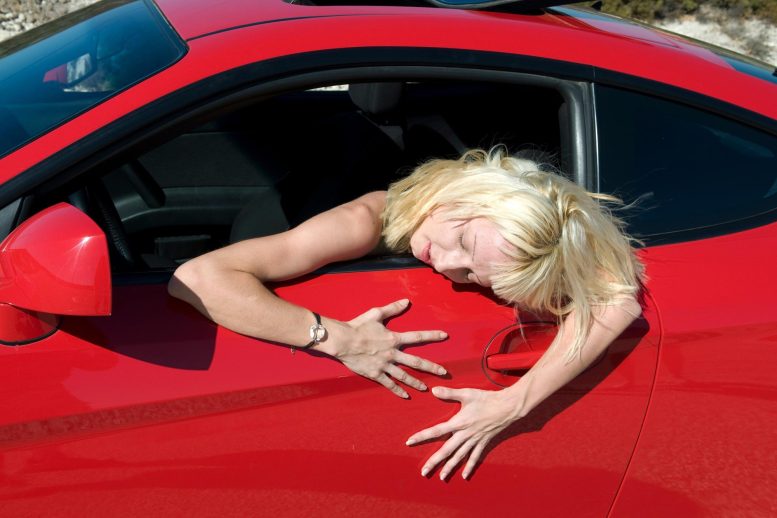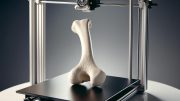
If you’ve been struggling to sell your old car, remember this: no one values your belongings as much as you do.
What is it?
The endowment effect describes our tendency to overvalue the goods in our endowment — our possessions — just because they are ours.
The seminal study
The term “endowment effect” was coined by the Nobel prize-winning economist Richard Thaler in 1980,[1] but the most well-known experiment was carried out by Thaler and two colleagues, psychologist Daniel Kahneman and behavioral economist Jack Knetsch, a decade later.[2] In the experiment, a group of Cornell students participated in an artificial market in which objects were exchanged for tokens. Immediately after taking part, participants on alternating seats were given coffee mugs. The people with the mugs were then asked to state the lowest price they’d be willing to sell their mug for, and the empty-handed volunteers next to them were asked to state the highest price they would be willing to pay. After some practice trading runs, participants were told that offers to sell mugs at a market-clearing price would be binding: successful buyers would pay the price and sellers would give up their mugs for the agreed sum. Even after all the rehearsal, surprisingly little trading occurred, because most of the sellers asked for about double the amount that the buyers were willing to pay. Apparently, a few minutes of ownership had raised the value of the mug to the owner beyond the reach of almost everyone else. Further experiments with other objects — some with visible price tags — produced similar results.
In a separate experiment, Knetsch gave all of the students in one of his classes a mug, ostensibly as a “thank you” for completing a short questionnaire. After doing so, the students were told that they could swap their mugs for some Swiss chocolate. The students in another class were offered the opportunity to make the opposite swap after being given some chocolate. Finally, the students in a third class were just offered a choice between a mug or some chocolate. When the students were given an outright choice, 56% chose the mug and 44% chose the chocolate. However, 89% of those endowed with a mug chose to keep the mug, and 90% of those endowed with a chocolate bar decided to keep the chocolate bar. Clearly, something about being the owner of an object makes you value it more.[3]
Further studies have firmly established the existence of this effect. People who buy a lottery ticket for $1.28 won’t sell it for less than $5.18, even though they could use their earnings to buy 3 more tickets and triple their odds of winning.[4] Hunters who are willing to pay $31.00 for a hunting license won’t resell it for less than $138.00.[5] Monkeys that are given fruit discs require far greater compensation in equally valued cereal chunks to give them up.[6]
The effect is not confined to goods. We demand more to give up entitlements such as intellectual property,[7] time, visibility, public land, safety, and environmental regulations[8] than we are willing to pay to acquire them.
How it works
The endowment effect was initially explained in terms of “loss aversion”, the fact that we feel worse about losing things — apparently about 1.31 times worse[9] — than we feel good about gaining them. So, if we tend to think of something that we sell as a (relatively large) loss and of something that we acquire as a (relatively small) gain, the same item will have a higher dollar value for owners than for potential buyers.
However, subsequent research suggests that there is more to the effect than loss aversion. In a clever experiment to separate feelings of ownership from feelings of loss, some people were given mugs, some were not, and then all were asked if they wanted to receive either a (second) mug or money. The mug owners did not have to give up their first mug, they faced only the possibility of getting a second mug. Still they still valued a second, identical mug more highly than non-owners valued a first mug, effectively demonstrating that the endowment effect is caused by having something rather than being scared of losing something.[10]
According to the “mere ownership hypothesis,”[11] ownership creates a psychological association between the object and its owner. Because we are generally biased to see ourselves in a positive light, we tend to like things more when we associate them with ourselves. It therefore follows that we will ask for more compensation if we have to give up a part of ourselves. Research has shown that the more highly we think of ourselves, the more we value our possessions,[12] and the more self-enhancing (typical of the West) our culture is, the more likely we are to fall prey to the endowment effect.[13] But if we own a product that makes us feel bad about ourselves — like a consolation prize for being last in a contest[14] — we do not value it any more than a random stranger would.
Some scholars have suggested that both ownership and potential loss of the self-associated object are necessary for the endowment effect to occur.[15] The idea is that sellers perceive the idea of selling something they own as an implicit threat to their self-image, and they subconsciously respond by enhancing the value of the self-associated object. This theory is bolstered by research showing that when participants’ egos are threatened — by asking them to write about bad events in their lives[16] or lying to them about how badly they have performed a task[14] — they set higher reserve prices for their endowed coffee mugs, pens, tote bags, or beverage insulators than their unthreatened peers.
Other theories put forward to explain the endowment effect focus on the idea that buyers and sellers have different perspectives. The “reference price theory”, for example, states that the endowment effect happens because buyers don’t want to pay more than they think an item is worth and sellers don’t want to sell for less than its market price — in other words, no-one wants to be suckered into a bad deal.[17] Buyers and sellers both search for reference prices that will enable them to get the most satisfaction from the deal; sellers of used cars are more likely to pay attention to the evaluation of a car mechanic who has put its worth at $700, and buyers are more likely to pay attention to the blue book value of $500.[18]
How to avoid it
Some research carried out in the lab[19] and in the field[20] suggests that it might be possible to overcome the endowment effect with practice; as similar trades are repeated, buyers are willing to pay a little more, and sellers are willing to accept a little less. The endowment effect doesn’t necessarily disappear, but the difference between what sellers are willing to accept and what buyers are willing to pay gets smaller. However, results from these types of experiments are mixed and do not look promising.[8]
Alternatively, according to researchers who have threatened people’s egos in the name of science, performing self-affirmation tasks — by, for instance, thinking about times you acted in accordance with your most important values or times you were proved right — negates the effect.
A better idea might be to wash your hands before you make any decisions. Yes, a good clean is all you might need to rid yourself of this pesky attachment to stuff. In this particular set of experiments, participants were either given cans of drink or chocolate bars at the start of the experiment before subsequently being asked if they wanted to swap their goodies for a similar but different product. Those who washed their hands were twice as likely to make the exchange as those who did not.[21]
So, if you have been trying to sell your old car without success, try to keep one thing in mind: no-one values your stuff as much as you do. Then go and give your hands a thorough scrub.
References:
- Thaler, R. (1980). Toward a positive theory of consumer choice. Journal of Economic Behavior & Organization, 1(1), 39-60.
DOI: 10.1016/0167-2681(80)90051-7 - Kahneman, D., Knetsch, J. L., & Thaler, R. H. (1990). Experimental Tests of the Endowment Effect and the Coase Theorem. Journal of Political Economy, 98(6), 1325-1348.
- Knetsch, J. L. (1989). The Endowment Effect and Evidence of Nonreversible Indifference Curves. The American Economic Review, 79(5), 1277-1284.
- Knetsch, J. L., & Sinden, J. A. (1984). Willingness to Pay and Compensation Demanded: Experimental Evidence of an Unexpected Disparity in Measures of Value. The Quarterly Journal of Economics, 99(3), 507-521.
DOI: 10.2307/1885962 - Heberlein, T., & Bishop, R. (1985). Assessing the validity of contingent valuation: Three field experiments. Science of the Total Environment 56(15), 99-107.
DOI: 10.1016/0048-9697(86)90317-7 - Lakshminaryanan, V., Keith Chen, M., & Santos, L. R. (2008). Endowment effect in capuchin monkeys. Philosophical Transactions of the Royal Society B: Biological Sciences, 363(1511), 3837-3844.
DOI: 10.1098/rstb.2008.0149 - Buccafusco, C. J., & Sprigman, C. J. (2010). Valuing Intellectual Property: An Experiment. Cornell Law Review, 96, 1-45.
DOI: 10.2139/ssrn.1568962 - Horowitz, J. K., & McConnell, K. E. (2002). A review of WTA/WTP studies. Journal of Environmental Economics and Management 44, 426-447.
DOI: 10.1006/jeem.2001.1215 - Walasek, L., Mullett, T. L., & Stewart, N. (2018). A meta-analysis of loss aversion in risky contexts. SSRN Working Paper.
DOI: 10.2139/ssrn.3189088 - Morewedge, C.K., Shu, L., Gilbert, D., & Wilson, T. (2009). Bad riddance or good rubbish? Ownership and not loss aversion causes the endowment effect. Journal of Experimental Social Psychology 45(4), 947-951.
DOI: 10.1016/j.jesp.2009.05.014 - Beggan, J. K. (1992). On the social nature of nonsocial perception: The Mere ownership effect. Journal of Personality and Social Psychology, 62(2), 229-237.
DOI: 10.1037/0022-3514.62.2.229 - Gawronski, B., Bodenhausen, G. V., & Becker, A. P. (2007). I like it, because I like myself: Associative self-anchoring and post-decisional change of implicit evaluations. Journal of Experimental Social Psychology, 43(2), 221-232.
DOI: 10.1016/j.jesp.2006.04.001 - Maddux, W., Yang, H., Falk, C., Adam, H., Adair, W. L., Endo, Y., Carmon, Z., & Heine, S. J. (2010). For whom is parting with possessions more painful? Cultural differences in the endowment effect. SSRN Electronic Journal, 21(12), 1910-1917.
DOI: 10.2139/ssrn.1670617 - Loewenstein, G., & Issacharoff, S. (1994). Source dependence in the valuation of objects. Journal of Behavioral Decision Making, 7(3), 157-168.
DOI: 10.1002/bdm.3960070302 - Chatterjee, P., Irmak, C., Rose, R. L. (2013). The Endowment Effect as Self-Enhancement in Response to Threat. Journal of Consumer Research, 40(3), 460-476.
DOI: 10.1086/671344 - Dommer, S. L., & Swaminathan, V. (2013). Explaining the endowment effect through ownership: The role of identity, gender, and self-threat. Journal of Consumer Research, 39(5), 1034-1050.
DOI: 10.1086/666737 - Weaver, R., & Frederick, S. (2012). A reference price theory of the endowment effect. Journal of Marketing Research, 49(5), 696-707.
DOI: 10.1509%2Fjmr.09.0103 - Birnbaum, M. H., & Stegner, S. E. (1979). Source credibility in social judgment: Bias, expertise, and the judge’s point of view. Journal of Personality and Social Psychology, 37(1), 48-74.
DOI: 10.1037/0022-3514.37.1.48 - Coursey, D. L., Hovis, J. L., & Schulze, W. D. (1987). The Disparity Between Willingness to Accept and Willingness to Pay Measures of Value. The Quarterly Journal of Economics, 102(3), 679-690.
DOI: 10.2307/1884223 - List, J. A. (2011). Does Market Experience Eliminate Market Anomalies? The Case of Exogenous Market Experience. The American Economic Review, 101(3), 313-317.
DOI: 10.1257/aer.101.3.313 - Florack, A., Kleber, J., Busch, R., & Stöhr, D. (2014). Detaching the ties of ownership: The effects of hand washing on the exchange of endowed products. Journal of Consumer Psychology, 24(2), 284-289.
DOI: 10.1016/j.jcps.2013.09.010









Be the first to comment on "The Endowment Effect: Why You Find It So Hard to Sell Your Used Car"